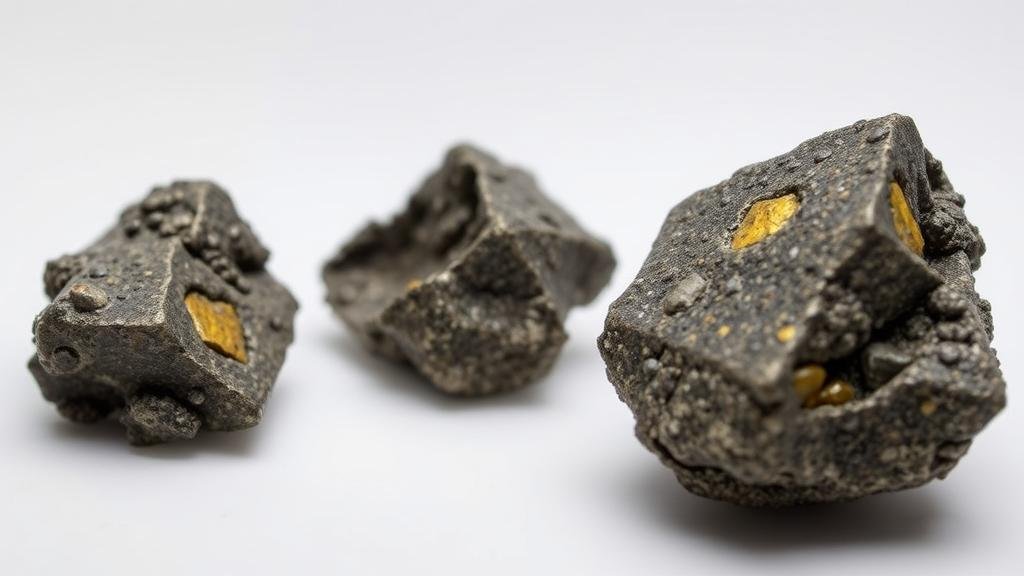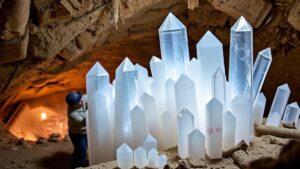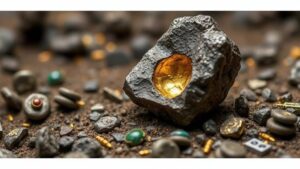Selling Rare Meteorites: How to Navigate Auction Platforms and Private Buyers
Selling Rare Meteorites: How to Navigate Auction Platforms and Private Buyers for Rockhounds and Mineral Collectors
For rockhounds and mineral collectors, selling rare meteorites can be both a profitable venture and a thrilling experience. Meteorites, particularly those that are classified as rare, can command high prices in the right market. With the rise of online auction platforms and a growing community of private buyers, its essential to understand how to effectively navigate these spaces to maximize the value of your collection.
Understanding Meteorite Rarity and Value
Before diving into the selling process, its crucial to understand what makes meteorites rare and valuable. Meteorites are categorized into three main groups: stony meteorites, iron meteorites, and stony-iron meteorites. The rarity of a meteorite can depend on several factors:
- Type: Certain types, such as chondrites or achondrites, may be more sought after than others.
- Provenance: Meteorites with well-documented histories or those recovered from celebrated falls can be significantly more valuable.
- Size and Weight: Larger specimens, particularly those exceeding 100 grams, often fetch higher prices.
- Condition: Well-preserved meteorites that retain their original crust are typically more desirable.
For example, the famous Hoba meteorite in Namibia is valued at millions due to its size (over 60 tons) and historical significance, demonstrating how rarity can impact value.
Choosing the Right Auction Platform
When it comes to selling meteorites, selecting the right auction platform is crucial. Different platforms cater to various audiences and types of sales, and understanding their nuances can enhance your selling experience. Here are a few notable options:
- eBay: One of the most popular platforms, eBay allows sellers to reach a global audience. Its important to create a detailed listing with high-quality images and compete on pricing.
- Heritage Auctions: This platform specializes in high-end collectibles, including meteorites. They provide expert valuations and a focused audience of serious collectors.
- Catawiki: Known for its curated auctions, Catawiki is another option where meteorites often sell at competitive prices. r expert reviewers can help enhance your listings credibility.
Each platform has its own fee structure, so understanding these costs is vital when pricing your meteorite. For example, eBay typically takes around 10% of the sale price as a fee, whereas Heritage Auctions may charge a higher percentage but offer more targeted exposure.
Connecting with Private Buyers
Also to auctions, connecting with private buyers can yield profitable opportunities. Networking within collector communities, attending mineral shows, or engaging in forums can facilitate direct sales. Here are some practical ways to approach private buyers:
- Join Collector Associations: Becoming a member of organizations like the Meteoritical Society can provide networking opportunities and access to potential buyers.
- Use Social Media: Platforms like Instagram and Facebook have groups dedicated to meteorite enthusiasts where you can showcase your collection and attract interested buyers.
- Word of Mouth: Let friends and acquaintances know that you are selling meteorites; personal recommendations can lead to significant sales.
Successful sales often hinge on establishing trust with private buyers. Consider offering a return policy or providing provenance documents to enhance buyer confidence.
Marketing Your Meteorite
Effective marketing is key to attracting buyers, whether on auction platforms or in private sales. It’s essential to showcase the unique qualities of your meteorite. Here are some strategies:
- High-Quality Photography: Capture detailed images from multiple angles. Good lighting and a neutral background help emphasize features.
- Detailed Descriptions: Include information about the meteorites classification, weight, dimensions, and any scientific analysis or certifications available.
- Storytelling: Share the narrative behind the meteorite’s discovery or historical significance, which can captivate potential buyers.
Statistics indicate that listings with effective visual storytelling can increase engagement by over 80%, significantly improving the chances of a sale.
Negotiating and Finalizing the Sale
Whether selling through an auction or directly to a buyer, negotiation is an important final step. Prepare yourself with market research to justify your pricing and be open to reasonable offers. Understanding market trends–like the recent surge in interest for lunar meteorites–can provide leverage during negotiations.
- Be Transparent: Provide potential buyers with all relevant information about the meteorite to build trust.
- Stay Flexible: If a buyers budget is slightly under your asking price but they are genuinely interested, consider negotiating to facilitate the sale.
Once a price is agreed upon, decide on payment methods (PayPal, bank transfers) and discuss shipping arrangements. For high-value meteorites, consider using a reputable shipping service with insurance and tracking for security.
Conclusion: Maximizing Your Meteorite Selling Experience
Selling rare meteorites can be highly rewarding if approached strategically. By understanding the rarity and value of your specimens, choosing the right selling platform, connecting with private buyers, and effectively marketing your pieces, you can achieve a successful sale. Remember, the key is to remain informed and flexible throughout the process, ensuring you make the most out of your collections.
For collectors looking to sell, take action by researching platforms now, documenting your meteorites meticulously, and preparing for engaging negotiations. The right preparation can lead to both profitable sales and the excitement of sharing your passion with others in the meteorite community.



